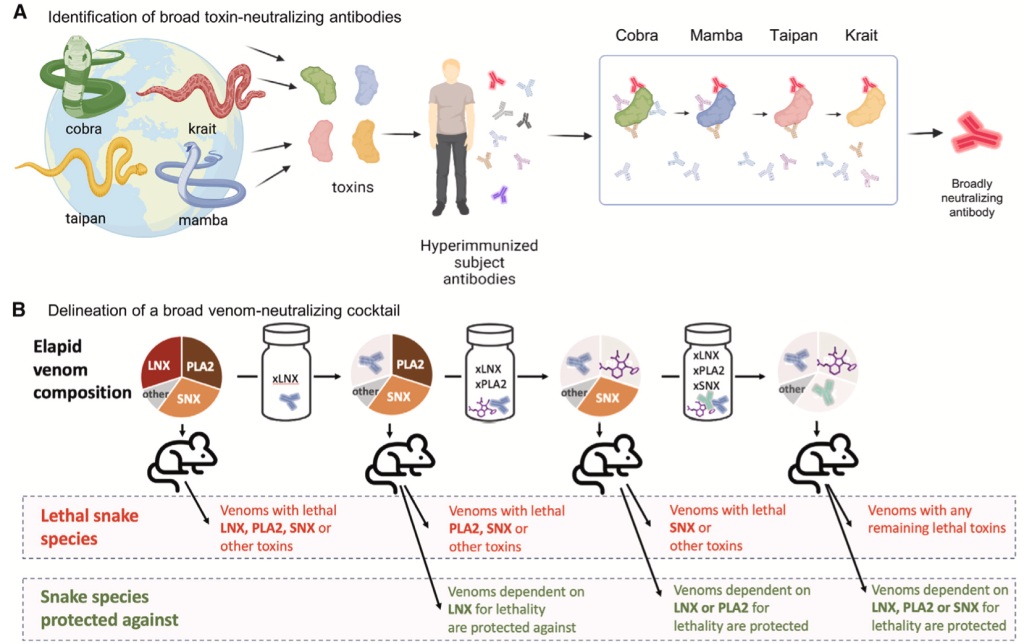by Lucas Unger
This study explores the development of a potential universal antivenom by combining monoclonal antibodies with a small-molecule inhibitor. By isolating antibodies from a hyperimmune human donor with extensive venom exposure (Tim Friede, who injected himself over 800 times with various snake venoms), two potent monoclonal antibodies were identified: LNX-D09 and SNX-B03. These antibodies target conserved regions of neurotoxins, providing protection against multiple venomous species, including mamba, cobra, and krait venoms.
A cocktail with both these found antibodies was then combined with varespladib, a molecule that inhibits phospholipase A2 (a key enzyme in venom toxicity). This combination proved highly effective in neutralizing venom in vivo mouse models. Mice injected with lethal doses of various venoms were treated with either the antibody cocktail alone, varespladib alone, or the combination. The results showed that the combination therapy provided full protection across several snake species, including 13 out of 19 high-priority venomous snakes identified by the World Health Organization.
This study paves the way for the development of a broad-spectrum antivenom, which could significantly improve the treatment of snake bites worldwide, offering a reliable and scalable solution.
Continue your reading here:
Glanville J, Bellin M, Pletnev S, Zhang B, Andrade JC, Kim S, Tsao D, Verardi R, Bedi R, Liao S, Newland R, Bayless NL, Youssef S, Tully ES, Bylund T, Kim S, Hirou H, Liu T, Kwong PD. Snake venom protection by a cocktail of varespladib and broadly neutralizing human antibodies
Cell 2025 Apr 30:S0092-8674(25)00402-7. doi: 10.1016/j.cell.2025.03.050

